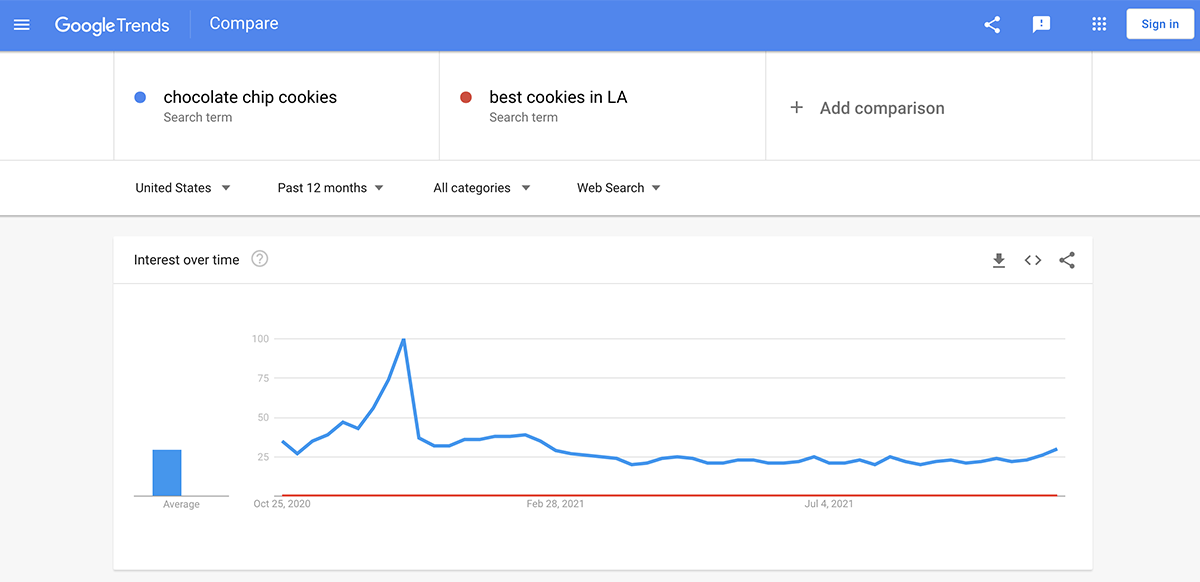Tracking keywords effectively is the cornerstone of a successful SEO strategy. In the vast digital landscape, understanding how your website ranks for specific search terms can make or break your online presence. Google Keywords Tracker is a powerful tool that empowers businesses and individuals to monitor their website's performance across various search queries. By leveraging this tool, you can identify high-value keywords, track their rankings, and optimize your content accordingly. In this article, we'll delve into the nuances of Google Keywords Tracker, offering actionable insights to enhance your website's visibility and drive organic traffic.
As search engine algorithms evolve, staying ahead of the competition requires a proactive approach to keyword management. Whether you're a seasoned digital marketer or just starting your SEO journey, Google Keywords Tracker offers the data-driven insights you need to succeed. This guide will walk you through the essentials of keyword tracking, including how to set up a tracker, interpret ranking data, and use it to refine your SEO strategy. By the end of this article, you'll have a solid understanding of how to harness the power of this indispensable tool.
SEO is not a one-time effort but an ongoing process. Regularly monitoring your keyword rankings ensures that your website remains competitive in the eyes of search engines. With Google Keywords Tracker, you can stay informed about changes in search trends, identify emerging opportunities, and adjust your strategy as needed. This article is designed to equip you with the knowledge and tools necessary to maximize the potential of Google Keywords Tracker, helping you achieve long-term success in the ever-changing world of SEO.
Read also:Get The Scoop An Inside Look At Ice Road Truckers Lucrative Earnings
What Exactly Is a Google Keywords Tracker?
A Google Keywords Tracker is a specialized software or tool that allows website owners and digital marketers to monitor the performance of specific keywords on Google's search engine results pages (SERPs). By tracking these keywords, users can gauge their website's visibility, understand how changes in content or SEO strategies impact rankings, and make data-driven decisions to improve their online presence. The tracker provides real-time insights into keyword positions, helping businesses stay competitive in their respective niches.
Keyword tracking is essential for SEO success, as it allows users to identify which keywords drive the most traffic to their websites and which ones may need optimization. By focusing on high-value keywords, businesses can target the right audience and improve their conversion rates. Furthermore, understanding keyword performance helps in allocating resources more efficiently, ensuring that marketing efforts are directed toward the most impactful areas.
Why Should You Use a Google Keywords Tracker?
Using a Google Keywords Tracker offers several advantages that contribute to a robust SEO strategy. First, it provides visibility into how your website ranks for specific keywords, allowing you to assess the effectiveness of your SEO efforts. Second, it helps you identify opportunities for growth by highlighting underperforming keywords that may benefit from optimization. Lastly, it enables you to stay informed about changes in search trends, ensuring that your website remains relevant and competitive.
How Does a Google Keywords Tracker Work?
At its core, a Google Keywords Tracker operates by periodically checking the position of specified keywords on Google's SERPs. It gathers data on various metrics, such as ranking position, search volume, and click-through rates (CTR), to provide a comprehensive overview of keyword performance. This data is then presented in an easy-to-understand format, often through dashboards or reports, allowing users to analyze trends and make informed decisions. By automating the tracking process, these tools save time and effort, enabling marketers to focus on strategy rather than manual data collection.
Is Google Keywords Tracker Necessary for SEO Success?
The short answer is yes. In today's competitive digital landscape, relying solely on intuition or guesswork is no longer sufficient for achieving SEO success. A Google Keywords Tracker provides the actionable insights needed to refine your SEO strategy and stay ahead of the competition. By monitoring keyword rankings, you can identify areas for improvement, capitalize on emerging trends, and ensure that your website remains visible to your target audience. Without a tracker, you risk missing out on valuable opportunities to enhance your online presence.
Can You Build Your Own Google Keywords Tracker?
While it is technically possible to build your own Google Keywords Tracker, it requires a significant investment of time, technical expertise, and resources. Developing such a tool involves understanding Google's search algorithms, implementing robust data collection methods, and creating user-friendly interfaces for data visualization. For most businesses, utilizing existing tools designed by experienced developers is a more practical and cost-effective solution. These tools offer advanced features and regular updates to ensure compatibility with the latest Google algorithms, saving you the hassle of maintaining a custom-built solution.
Read also:Exploring The Versatile Career Of Adam Scott A Deep Dive Into The Life Of The Actor
What Features Should You Look for in a Google Keywords Tracker?
When selecting a Google Keywords Tracker, consider the following features:
- Real-time data updates to ensure accuracy and relevance.
- Comprehensive reporting tools for easy analysis of keyword performance.
- Integration with other SEO tools for a holistic approach to digital marketing.
- Customizable dashboards to focus on the metrics that matter most to your business.
- Alerts for significant changes in keyword rankings, allowing for prompt action.
How Can You Optimize Your Strategy with a Google Keywords Tracker?
Once you have access to the data provided by a Google Keywords Tracker, the next step is to optimize your SEO strategy. Start by identifying high-value keywords that align with your business goals. Next, analyze the performance of these keywords and adjust your content accordingly. For example, if a particular keyword ranks lower than desired, consider updating the associated page with more relevant content or improving its on-page SEO elements. Additionally, pay attention to search trends and emerging keywords that could offer new opportunities for growth.
What Are the Best Practices for Using a Google Keywords Tracker?
To get the most out of your Google Keywords Tracker, follow these best practices:
- Set clear objectives for your keyword tracking efforts, such as improving rankings for specific terms or increasing organic traffic.
- Regularly review your tracker data to identify trends and patterns that could inform your SEO strategy.
- Combine keyword tracking with other SEO tools, such as site audits and backlink analysis, for a comprehensive approach to digital marketing.
- Stay informed about changes in Google's algorithms and adjust your strategy as needed to maintain optimal performance.
How Often Should You Check Your Google Keywords Tracker?
The frequency of your checks depends on your business needs and the level of competition in your niche. For highly competitive industries, daily monitoring may be necessary to stay ahead of the curve. In less competitive sectors, weekly or bi-weekly checks may suffice. Regardless of the frequency, consistency is key. Regularly reviewing your tracker data ensures that you remain aware of changes in keyword performance and can take swift action when needed.
What Are the Limitations of a Google Keywords Tracker?
While a Google Keywords Tracker is an invaluable tool for SEO, it does have limitations. For instance, it cannot account for all factors that influence search rankings, such as user behavior and Google's ever-evolving algorithms. Additionally, some trackers may struggle with accurately reflecting local search results, making it challenging to assess regional performance. Despite these limitations, a tracker remains an essential component of any SEO strategy, providing valuable insights that can guide your efforts toward success.
How Can You Overcome the Limitations of a Google Keywords Tracker?
To address the limitations of a Google Keywords Tracker, consider supplementing its data with other SEO tools and strategies. Conduct regular site audits to identify technical issues that could impact rankings. Analyze user behavior through analytics platforms to gain insights into how visitors interact with your website. Additionally, stay informed about Google's algorithm updates and adjust your strategy accordingly. By combining multiple approaches, you can create a well-rounded SEO strategy that accounts for all relevant factors.
Can a Google Keywords Tracker Help with Local SEO?
A Google Keywords Tracker can provide valuable insights into local SEO performance, but its effectiveness depends on the tool's capabilities. Some trackers offer location-specific data, allowing users to monitor keyword rankings in specific geographic regions. By focusing on local keywords, businesses can improve their visibility in regional search results, attracting more targeted traffic. To maximize the potential of your tracker for local SEO, ensure that it supports location-based tracking and integrates with other tools, such as Google My Business.
Conclusion: Unlocking the Full Potential of Google Keywords Tracker
In conclusion, a Google Keywords Tracker is an essential tool for anyone serious about SEO. By providing actionable insights into keyword performance, it empowers businesses to refine their strategies, stay competitive, and achieve long-term success. While it does have limitations, these can be mitigated through the use of complementary tools and strategies. As you embark on your SEO journey, remember that consistency and adaptability are key to unlocking the full potential of Google Keywords Tracker and driving your online presence to new heights.
Table of Contents
- What Exactly Is a Google Keywords Tracker?
- Why Should You Use a Google Keywords Tracker?
- How Does a Google Keywords Tracker Work?
- Is Google Keywords Tracker Necessary for SEO Success?
- Can You Build Your Own Google Keywords Tracker?
- What Features Should You Look for in a Google Keywords Tracker?
- How Can You Optimize Your Strategy with a Google Keywords Tracker?
- What Are the Best Practices for Using a Google Keywords Tracker?
- How Often Should You Check Your Google Keywords Tracker?
- What Are the Limitations of a Google Keywords Tracker?


